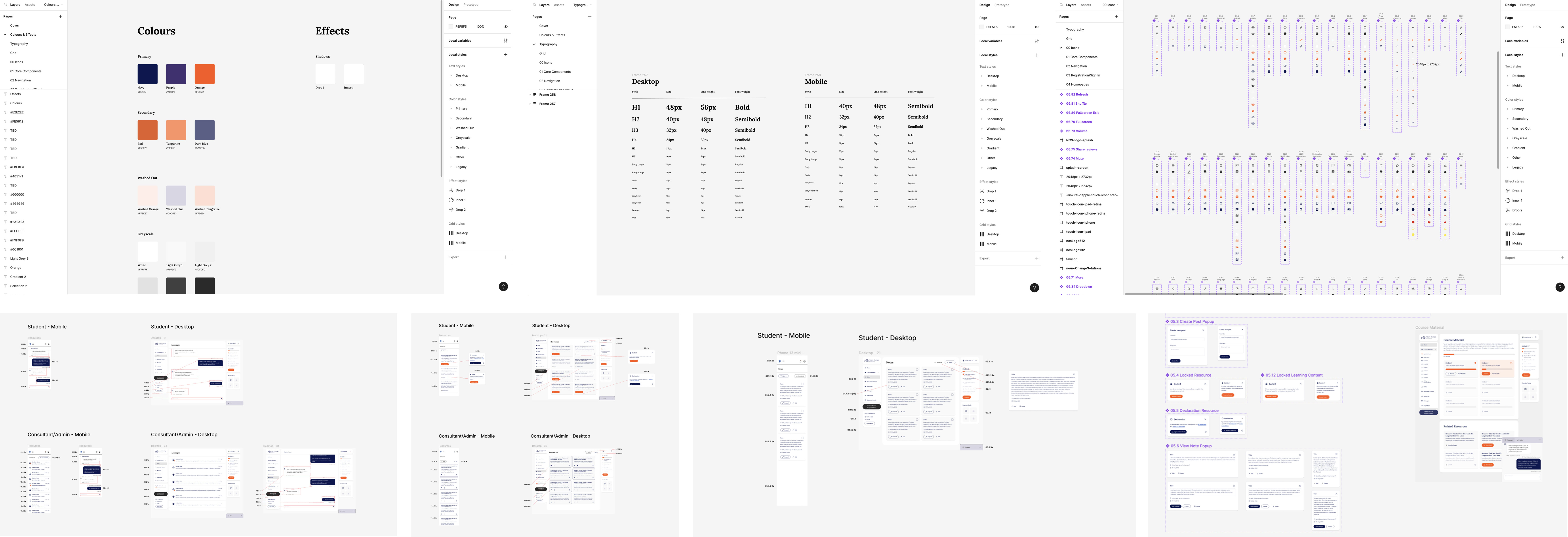Introduction
The evolution of Learning Management Systems (LMS) has been significantly influenced by the development of the internet. Traditionally, LMS were used primarily in educational institutions for managing course content and student information. However, with the widespread adoption of the internet, these systems have transformed drastically.
Pre-Internet Era of LMS
Early Beginnings: Initially, LMS were simple systems used for administrative purposes in educational settings. They were primarily offline, focusing on record-keeping and basic educational content delivery.
Limited Accessibility and Scalability: These early systems were constrained by the lack of connectivity, limiting access to educational resources and making scalability a challenge.
Revolution through Internet
Global Accessibility: The internet allowed LMS to become globally accessible, enabling learners from different geographical locations to access the same resources.
Interactive and Engaging Content: The use of multimedia and interactive content became prevalent, enhancing the learning experience. Platforms like Moodle and Blackboard started integrating videos, quizzes, and interactive modules.
Data-Driven Personalisation: Advanced data analytics enabled personalised learning experiences, adapting to individual learner's pace and style.
Social Learning and Collaboration: Online forums, chatrooms, and collaborative tools integrated into LMS facilitated peer-to-peer learning and knowledge sharing.

Impact on Training and Upskilling
Corporate Training: Companies began adopting LMS for employee training and development. Platforms like LinkedIn Learning and Coursera for Business are examples where LMS are used for professional upskilling.
Continuous Learning Culture: The ease of access to online courses has fostered a culture of continuous learning and professional development.
Cost-Effectiveness and Scalability: Online training reduced the need for physical training materials and venues, making it more cost-effective and scalable.
Tracking and Reporting: LMS provided tools for tracking progress and performance, essential for corporate training environments.
Cognitive Load and Learning
In the critical phase of testing a Learning Management System (LMS), particular attention is given to ensuring that the cognitive load for users is kept to a minimum. This process involves rigorous usability testing, where real-world scenarios are simulated to identify any potential complexities or navigational challenges within the platform. The goal is to refine the LMS to a point where its interface and functionality become almost intuitive to the user. By reducing unnecessary distractions and simplifying the user journey, the LMS can facilitate a more focused and effective learning experience. This approach is not only about removing technical barriers but also about understanding and catering to the cognitive processes of learners. The aim is to create a seamless integration of technology and education, where the technology fades into the background, allowing learners to immerse themselves fully in the educational content. This careful balancing act ensures that the platform enhances, rather than impedes, the learning process.

Technology and The Future
The landscape of Learning Management Systems (LMS) is undergoing a significant transformation, driven largely by rapid advancements in technology, particularly in the realm of Virtual Reality (VR). VR technology has started to redefine the boundaries of digital learning by offering immersive, interactive experiences that were previously unattainable in traditional learning environments. Incorporating VR into LMS platforms revolutionises how educational content is delivered and experienced. It allows learners to engage with material in a more hands-on and experiential manner, facilitating deeper learning and retention. For instance, VR can transport students to virtual field trips, enable them to conduct complex scientific experiments in a risk-free virtual lab, or practice language skills in a simulated real-world environment. This integration of VR into LMS not only enriches the learning experience but also expands the capabilities of educators to present information in more innovative and engaging ways. As VR technology continues to evolve and become more accessible, it is poised to play a pivotal role in shaping the future of education and training, making learning a more dynamic and interactive process.
Challenges
Digital Divide: Despite the internet's reach, there remains a digital divide. Access to reliable internet and digital devices is still a challenge in many regions, this can be a particular challenge for global teams.
Keeping Content Up-to-Date: The rapid pace of technological and industry changes requires constant updating of training materials, which can be resource-intensive.
Engagement and Motivation: Online environments can sometimes lead to lower engagement and motivation compared to in-person training.
Data Privacy and Security: With the increase in online data, LMS need to ensure robust data privacy and security measures.
Adapting to Different Learning Styles: Catering to diverse learning styles in an online setting remains a challenge.
Conclusion
The integration of the internet into Learning Management Systems has revolutionised the way educational and training content is delivered and accessed. It has democratised learning opportunities but also brought forth challenges such as maintaining engagement, ensuring data security, and overcoming the digital divide. The future of LMS lies in addressing these challenges while harnessing the potential of emerging technologies like AI and VR to make learning more immersive and personalised.
